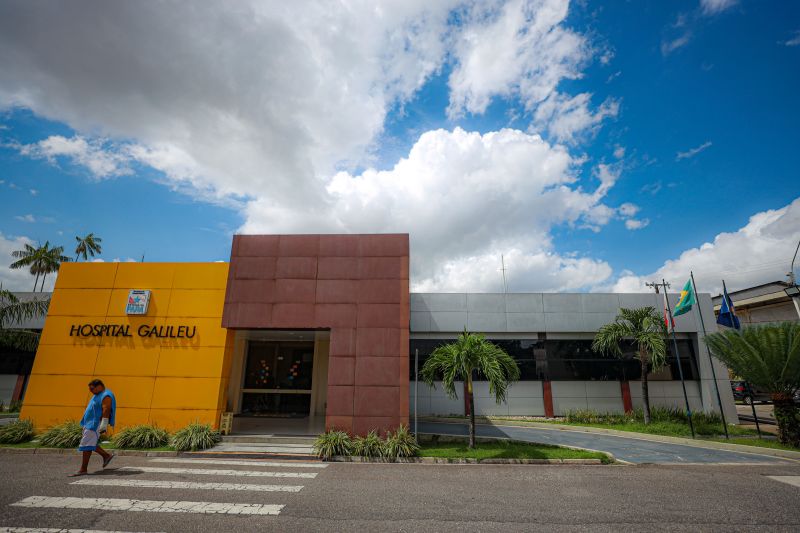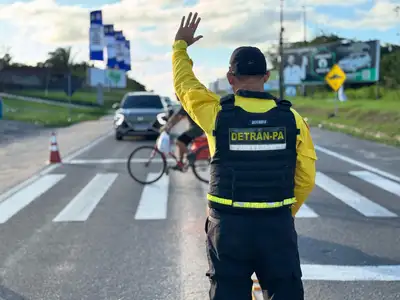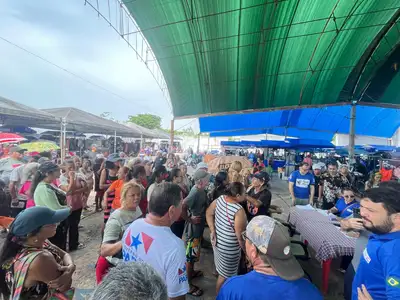Galileu Hospital is a reference in orthopedics for traffic accident victims
The unit operates with a multidisciplinary team in the recovery of complex traumas and reinforces the importance of traffic prevention during this school holiday period

The month of school holidays has arrived. There are families that leave their routine and hit the road to enjoy this period in the countryside, at the beaches, and in the resorts of Pará. However, every precaution is necessary to avoid traffic accidents that can leave lifelong traumas. The Galileu State Public Hospital (HPEG), located in Greater Belém, has established itself as a reference in high-complexity orthopedic treatment, especially in cases involving victims of road accidents. The unit has a specialized team that works humanely in the recovery of severe fractures and extensive traumas.
Orthopedist Reginaldo Maurício Rios explains that polytrauma — multiple injuries affecting different parts of the body — is common among victims of automobile accidents. "Orthopedic damages include open fractures, multiple fractures, and dislocations, which compromise the mobility of the upper and lower limbs," he details.
According to the doctor, it is common for patients to present fractures in long bones, such as the femur, tibia, and humerus, in addition to severe joint injuries that require delicate surgeries. "These traumas can also compromise soft tissues, affecting nerves and blood vessels, which makes rehabilitation challenging and prolonged," he emphasizes.
Specialized care
Although it is a secondary care unit, Galileu Hospital is prepared to receive cases referred from various regions of Pará, after initial stabilization.
"We receive patients with prior support, and in the unit, we continue orthopedic treatment, focusing on the functional preservation of the limbs and the reintegration of the patient into their daily activities," says the orthopedist.
At the hospital, recovery goes beyond the surgical procedure. The process requires the involvement of a multidisciplinary team, composed of physiotherapists, occupational therapists, and psychologists, who contribute to the physical and emotional support of the patient. "Each professional plays an essential role in comprehensive rehabilitation. It is a complex process that requires technical competence and human sensitivity," adds Moura.
Another determining factor for the success of treatment is the time between the accident and the start of specialized care. "The sooner the patient arrives at the unit with adequate support, the greater the chances of preserving the injured limb and reducing future complications," he points out.
Behavior on the road remains the biggest challenge
With extensive experience in orthopedic trauma, the doctor warns that many serious accidents could be avoided with simple actions. Excessive speed, using a cell phone while driving, consuming alcohol or drugs, and neglecting the use of helmets and seat belts are recurring factors in the cases treated.
"These actions significantly increase the risk of serious and fatal injuries," he emphasizes. According to him, the correct use of safety equipment directly impacts the severity of injuries. "Studies show that helmets and seat belts reduce the number and severity of fractures. Even so, many drivers continue to ignore this care," he laments.
In addition to the physical and emotional consequences, traffic accidents generate high hospital and social costs. "There are impacts on the public health system, on families, and on productivity. It is a problem that affects society as a whole," says the orthopedist.
For him, reducing accidents on the roads requires a collective response — with more education in traffic, ongoing awareness campaigns, strict enforcement, and investments in road infrastructure. "A safe traffic environment starts with responsible actions. And, if an accident occurs, seeking immediate medical attention can make all the difference in the outcome," he concludes.
Profile
The unit is managed by the Institute of Social and Environmental Health of the Amazon (ISSAA), in partnership with the State Department of Public Health (Sespa). HPEG is among the best hospitals in Brazil, with satisfaction rates close to 100% and ONA Level 3 certification — accredited with excellence in safety, integrated management, and quality of care criteria.









